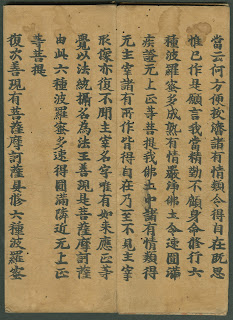In 1810, a group of Dartmouth Medical School students was caught removing a body from the Norwich, Vermont, cemetery. Bodies for dissection were hard to come by at the time and grave robbing was not as uncommon a practice as one might think. Normally, medical schools obtained bodies from prisons as condemned criminals were often further punished by having their bodies given over to science. However this offered only a limited supply of cadavers for study. The same year Dartmouth opened its medical school, the state of New Hampshire stiffened the penalties for grave robbing knowing that there would be increased demand for the dead.
This letter of apology is telling of the students' attitudes toward the public. In their apology, stated "with the most pungent sensations" they put the burden back onto the people of the town:
Painful considerations force themselves upon us, with increased effect, when we contemplate our fellow citizens, in the neighboring villages, trembling for the relics of their dead, which, they have long been educated, to hold sacred; the unlawful removal of which, in their view, can be nothing short of sacrilege.
The villagers are reduced to trembling, uneducated peons who seem unable to differentiate between the relic and the reality. It seems the medical students are not so much sorry about what they did, but that the superstitious townspeople believe it wrong.
There are gruesome stories in the Archives. This letter is featured in the current exhibit,
The Body: Depressed, Flayed, and Stolen from the Grave curated by members of Sienna Craig's "The Values of Medicine" class. It will be on display through June 20th, after which you can ask for Mss 810900.6.




